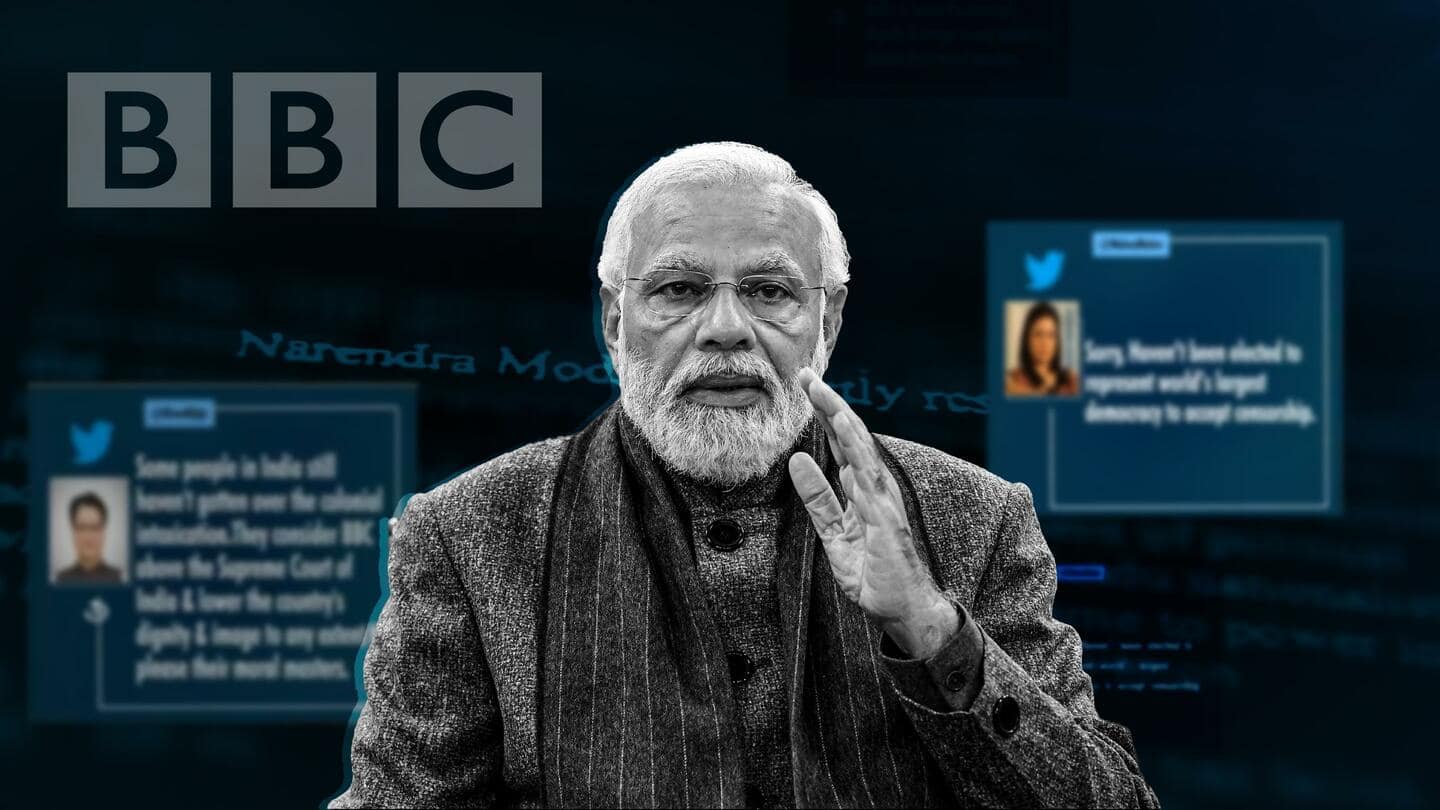
SC seeks Centre's reply over appeals against banning BBC documentary
What's the story
The Supreme Court issued a notice to the Centre following appeals challenging its move to ban the BBC documentary on Prime Minister Narendra Modi.
It sought the Centre's response within three weeks and posted the matter for hearing in April.
A bench comprising Justices Sanjiv Khanna and MM Sundresh asked the Centre to produce original documents concerning the order in the next hearing.
Context
Why does this story matter?
The BBC released the documentary India: The Modi Question, which investigated PM Modi's involvement in the 2002 Gujarat riots, which killed over 2,000 people.
Soon after its release, the Centre banned the documentary, branding it as colonial propaganda pushing a "discredited narrative."
In defiance of the ban, various groups screened the controversial documentary across the country and moved the top court against the "censorship."
Petition
Petition filed by N Ram, Mahua Moitra, Prashant Bhushan
The petition being heard was jointly filed by journalist N Ram, advocate Prashant Bhushan, and Trinamool Congress (TMC) MP Mahua Moitra, along with another petition filed by advocate ML Sharma.
The joint petition was represented by senior advocate Chander Uday Singh, who submitted that the Centre blocked the documentary by invoking the emergency powers under the IT Rules.
High Court
SC restrained HC from hearing matters related to IT Rules
When the bench asked why the petitioners didn't go to the high court first, Singh said that the SC had restrained the HCs from hearing those matters.
The SC transferred all petitions pending in the HC challenging the IT Rules to itself. The blocking order has been issued under the same rules, some provisions of which have been stayed by Bombay and Madras HCs.
Submission
Universities acting against students based on Centre's secret order: Counsel
Singh prayed for two limited interim reliefs. It sought to direct the Centre to furnish all original records.
Some secret orders have been sent to universities, based on which they are acting against students screening the documentary, Singh added.
He said that the emergency blocking orders must be published in the public domain within 48 hours as per the IT Rules.